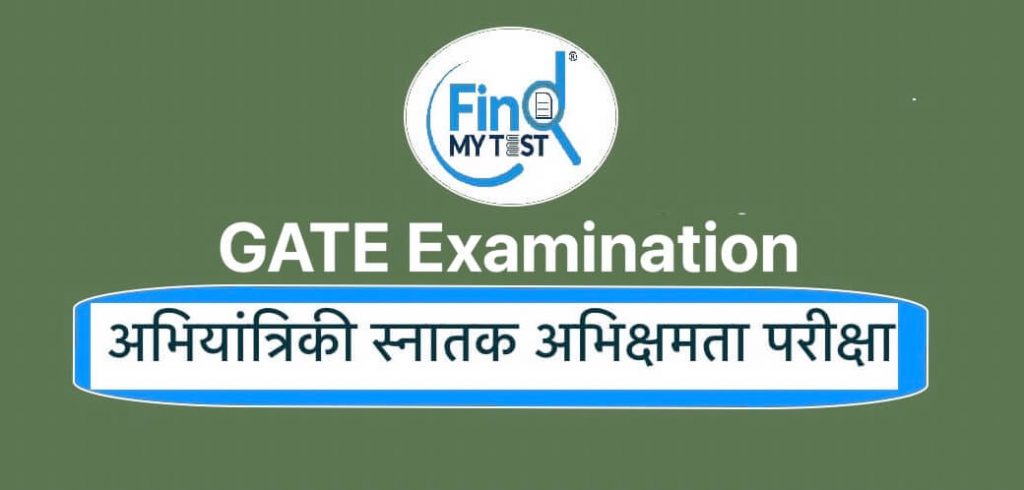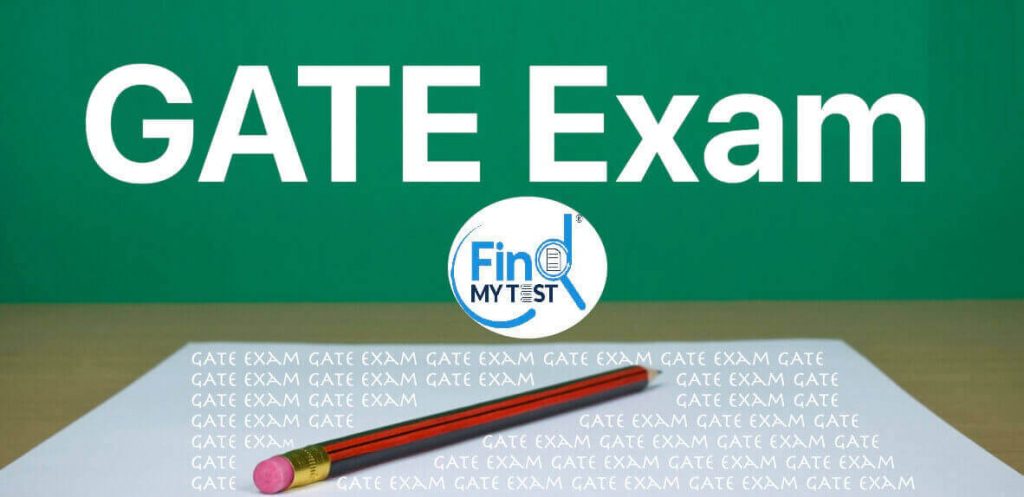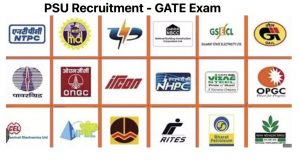The GATE exam is one of the most prestigious examinations for Indian engineering students. Along with unlocking access to admissions in IITs and NITs in India, securing a good rank in the GATE exam also opens doors for many employment opportunities and admissions in some colleges located in countries like Singapore and Germany.
Table of Contents
A good GATE score can also help one qualify for various scholarships and financial aid for further studies. More than 600,000 students appear for the GATE examination each year with a dream to gain admission to their favorite technical institutes across India, but only a handful are able to fulfill their dream.
The main difference between those who are able to crack this examination and those who aren’t lies in the amount of preparation and the information one has collected about the examination. So we are here to provide you with all the relevant information you need to be fully prepared and ace the examination. We also have a list of possibilities you can consider after GATE if you are not yet sure.
GATE Exam Basic Information
GATE stands for Graduate Aptitude Test in Engineering. It is a national-level test for Indian engineering students for admission to the most prestigious academies in India for postgraduate studies thru GATE Counselling based on their GATE score. Although it is mainly for Indian students, it is also open to students from other countries like Nepal, Bangladesh, the United Arab Emirates, Ethiopia, and Sri Lanka.
A good GATE score can also help one get admission to some colleges outside India, located in Singapore and Germany. Every year the GATE examination is organized by one of the IITs located across various parts of India and the IISc (Indian Institute of Science).
These IITs are IIT Bombay, IIT Guwahati, IIT Kharagpur, IIT Madras, IIT Roorkee, IIT Delhi, and IIT Kanpur. For the year 2025, Indian Institute of Science, Bangalore (IISc) is organizing the exams. All the relevant information about the date, eligibility, or exam pattern is available on the IIT Roorkee’s website.

GATE 2025 Eligibility
To be eligible to appear in the GATE examination, a candidate should meet some academic and personal credentials. According to the eligibility criteria released by IIT Roorkee, which is organizing the GATE exams for the year 2025, the eligibility criteria include:
- Candidates must have completed or be in the final year of their Bachelor’s degree in any field from a recognized university.
- There is no age limit for the GATE 2025 examination, but candidates must be at least 21 years old.
- Both Indian and foreign candidates can apply for this examination.
GATE Examination for Different Branches
GATE is available for almost every branch of engineering. Students from any branch of engineering can appear in the GATE examination as long as they have a B.Tech or M.Tech degree. Students from M.Sc. can also appear for the GATE examination as long as their degree is in a related subject.
The GATE examination is available in 30 papers as of 2024, among which candidates have to choose one to appear in. The list of papers a candidate can choose from are listed below:
- Aerospace Engineering (Paper Code- AE)
- Agriculture Engineering (Paper Code- AG)
- Architecture and Planning (Paper Code- AR)
- Biomedical Engineering (Paper Code- BM)
- Biotechnology (Paper Code- BT)
- Civil Engineering (Paper Code- CE)
- Chemical Engineering (Paper Code- CH)
- Computer Science and Information Technology (Paper Code- CS)
- Chemistry (Paper Code- CY)
- Data Science and Artificial Intelligence (Paper Code-DA)
- Electronics and Communication Engineering (Paper Code- EC)
- Electrical Engineering (Paper Code- EE)
- Ecology and Evolution (Paper Code-EY)
- Environmental Science and Engineering (Paper Code- ES)
- Geology and Geophysics (Paper Code- GG)
- Geomatics Engineering (Paper Code-GE)
- Instrumentation Engineering (Paper Code- IN)
- Mathematics (Paper Code- MA)
- Mechanical Engineering (Paper Code- ME)
- Mining Engineering (Paper Code- MN)
- Metallurgical Engineering (Paper Code- MT)
- Naval Architecture & Marine Engineering (Paper Code-NM)
- Petroleum Engineering (Paper Code- PE)
- Physics (Paper Code- PH)
- Production and Industrial Engineering (Paper Code- PI)
- Statistics (Paper Code- ST)
- Textile Engineering and Fiber Science (Paper Code- TF)
- Life Sciences (Paper Code- XL)
- Engineering Sciences (Paper Code- XE)
- Humanities and Social Sciences (Paper Code- XH)
This year, a new paper has been added to the examination: Data Science and Artificial Intelligence.
Preparing for GATE and Looking for a Best Mock Test Series?
Register yourself now to get 25% discount on mock test series.
FindMyTest Test Series for GATE
GATE Exam Pattern 2025
GATE is a computer-based examination. The main purpose of this exam is to check a candidate’s understanding and knowledge of engineering subjects. All the papers will be objective type, which will include multiple-choice questions (MCQs), multiple selection questions (MSQs), and numerical answer type (NAT) questions.
All of these questions carry either 1 or 2 marks. Correctly answering a question awards the candidate with either 1 or 2 marks. A wrong answer results in the deduction of 1/3 marks for a 1-mark question and 2/3 marks for a 2-mark question. There is negative marking for wrong answers, so candidates should be very careful while attempting the questions. In case of doubt, sometimes not answering a question can be more beneficial than attempting and losing marks.
The question pattern and marking scheme for a GATE paper can vary according to the subject. Candidates can choose one or, in some cases, a maximum of two papers to appear in. All the papers have a total of 100 marks and 65 questions.
For the papers in Architecture and Planning, Chemistry, Ecology and Evolution, Geology and Geophysics, Mathematics, Physics, Statistics, Humanities and Social Sciences, and Life Sciences, 15% of the total marks come from the General Aptitude section and the remaining 85% from the subject chosen by the candidate.
The rest of the subject papers include the mathematics section. For papers in Aerospace Engineering, Agriculture Engineering, Biomedical Engineering, Biotechnology, Civil Engineering, Computer Science and Information Technology, Electronics and Communication Engineering, Electrical Engineering, Environmental Science and Engineering, Instrumentation Engineering, Mechanical Engineering, Mining Engineering, Metallurgical Engineering, Petroleum Engineering, Production and Industrial Engineering, Textile Engineering, Fiber Science, and Engineering Sciences, 13% of the marks come from the Engineering Mathematics section, 15% from the General Aptitude section, and the remaining 72% from the subject itself.
Must Check: GATE Online Mock Test Series Schedule
Most of the papers has three sections. One section is the General Aptitude section, another is the compulsory subject section, and the final section consists of a subject that the candidate can choose.
For the Life Sciences paper, the compulsory subject is Chemistry, and for Humanities and Social Sciences, the compulsory subject is Reasoning and Comprehension. For the rest of the subjects, the compulsory subject is Mathematics.
GATE New Syllabus 2025
The GATE syllabus for each paper and all subjects has already been released. The topics covered in each paper are mentioned below so you can check the one for your paper.
The Engineering Mathematics section is a compulsory portion of many papers. It covers the following topics: Calculus, Complex Variables, Linear Algebra, Vector Calculus, Partial and Ordinary Differential Equations, Probability and Statistics, and Numerical Methods.
The short syllabus for each specific paper includes:
- Aerospace Engineering: Aerodynamics, Flight Mechanics, Space Dynamics, Structures, and Propulsion.
- Agriculture Engineering: Farm Machinery, Irrigation and Drainage Engineering, Dairy and Food Engineering, Soil and Water Conservation Engineering, Farm Power, and Agricultural Processing Engineering.
- Architecture and Planning: General questions on topics like Urban Design, Planning Process, and Housing; Architecture; and Planning.
- Biomedical Engineering: Electrical Circuits, Sensors and Bioinstrumentation, Measurements and Control Systems, Biomechanics, Human Anatomy and Physiology, Medical Imaging Systems, Analog and Digital Electronics, Signals and Systems, and Biomaterials.
- Biotechnology: General Biotechnology (Microbiology, Biochemistry, and Immunology), Fundamentals of Biological Engineering, Plant-Animal and Microbial Biotechnology, Recombinant DNA Technology, Genetics, Cellular and Molecular Biology, and Bioprocess Engineering and Process Biotechnology.
- Civil Engineering: Transportation Engineering, Water Resources Engineering, Structural Engineering, Environmental Engineering, Geomatics Engineering, and Geotechnical Engineering.
- Chemical Engineering: Heat Transfer, Mass Transfer, Process Calculation and Thermodynamics, Chemical Reaction Engineering, Fluid Mechanics and Mechanical Operations, Chemical Technology, Instrumentation and Process Control, and Plant Design and Economics.
- Computer Science and Information Technology: Algorithms, Digital Logic, Compiler Design, Theory of Computation, Operating Systems, Computer Networks, Databases, Programming and Data Structures, and Computer Organization and Architecture.
- Chemistry: Inorganic Chemistry, Organic Chemistry, and Physical Chemistry.
- Data Science and Artificial Intelligence: Probability and Statistics, Liner Algebra, Calculas and Optimisation, Programming, DSA, DMW, Machine Learning and AI.
- Electronics and Communication Engineering: Analog Circuits, Control Systems, Electronic Devices, Digital Circuits, Communications, Electromagnetic and Networks, Signals and Systems.
- Electrical Engineering: Analog and Digital Electronics, Electrical and Electronic Measurements, Power Electronics, Control Systems, Signals and Systems, Electrical Mechanics, Electromagnetic Fields, Electric Circuits, and Power Systems.
- Ecology and Evolution: Behavioral Ecology, Ecology, Applied Ecology and Evolution, Evolution, Mathematics and Quantitative Ecology.
- Environmental Science and Engineering: Water and Wastewater Management, Environmental Management and Sustainable Development, Environmental Chemistry, Water Resources and Hydraulics, Environmental Microbiology, Global and Regional Environmental Issues, Solid and Hazardous Waste Management, Noise Pollution, and Air Pollution.
- Geology and Geophysics: Earth and Planetary System, Geology and Geophysics, Structural Geology, Geochemistry, Mineralogy and Petrology, Paleontology and Stratigraphy, Sedimentology, Marine Geology and Oceanography, Applied Geophysics, Mathematical Methods in Geophysics, Potential Field Theory, and Seismology.
- Geomatics Engineering:
Common Part: Remote Sensing, GNSS, GIS
Section i: Maps, Land Surveying, Aerial Photogrammetry
Section ii: Data Quantization and Processing, Digital Image Processing, Radiometric and Geometric Corrections, Image Enhancement, Image Transformation, Image Segmentation and Classification - Instrumentation Engineering: Analog and Digital Electronics, Electrical Circuits, Measurements, Transducers, Industrial Instrumentation, Signals, Systems and Communication, Process Control, Control Systems, and Optical and Biomedical Instrumentation.
- Mathematics: Calculus, Linear Algebra, Complex Analysis, Real Analysis, Ordinary Differential Equations, Partial Differential Equations, Algebra, Functional Analysis, Topology, Numerical Analysis, and Probability and Statistics.
- Mechanical Engineering: Engineering Mechanics, Fluid Mechanics, Heat Transfer, Industrial Engineering, Material Science, Machine Design, Theory of Machines, and Thermodynamics.
- Mining Engineering: Rock Mechanics and Ground Control, Mine Planning and Systems, Mine Economics, Mine Ventilation, Mine Development, Mining Methods, Surface Mining, Mine Environment and Ecology, Underground Mining Methods, and Mine Machinery.
- Metallurgical Engineering: Thermodynamics and Rate Processes, Extractive Metallurgy, Physical Metallurgy, and Mechanical Metallurgy.
- Naval Architecture & Marine Engineering: Applied Mechanics and Structures, Fluid Mechanics and Marine Hydrodynamics, Naval Arch. and Ocean Engineering, Thermodynamics and Marine Engineering
- Petroleum Engineering: Petroleum Exploration, Production Operations, Reservoir, Formation Evaluation, Drilling Engineering, Oil and Gas Well Testing, and Oil and Gas Processing.
- Physics: Mathematical Physics, Classical Mechanics, Electromagnetic Theory, Thermodynamics and Statistical Physics, Solid State Physics, Quantum Mechanics, Nuclear and Particle Physics, Electronics, and Atomic and Molecular Physics.
- Production and Industrial Engineering: Engineering Materials, Metal Casting, Metal Forming, Welding, Manufacturing Analysis, CAD/CAM/CIM, Inventory Control, Production Planning and Control, Operations Research, Quality Management, and Work System Design.
- Statistics: Linear Models, Stochastic Processes, Multivariate Analysis, Inference, Estimation, Hypothesis Testing, Sampling Theory, Design of Experiments, Regression Analysis, and Probability.
- Textile Engineering and Fiber Science: Textile Engineering, Fiber Science, and Textile Testing.
- Life Sciences: Biochemistry, Botany, Microbiology, Zoology, and Food Technology.
- Engineering Sciences: Materials Science, Solid Mechanics, Thermodynamics, Fluid Mechanics, Polymer Science and Engineering, Food Technology, Atmospheric and Oceanic Sciences.
- Humanities and Social Sciences: Psychology, Philosophy, English, Economics, Sociology, and Linguistics.
Please visit FMT another article to read Syllabus in depth for each paper: GATE Syllabus
Student Statistics for Past Examinations
Each year more than 6-9 lakh students appear in the GATE examination since the year 2012. In the year 2019, 7,79,632 students appeared for the GATE examination in total.
Among these students, only about 18.80% qualified for the examination and took part in admissions in different IITs and other programs.
For the year 2020, 858,890 students applied for the exam, 685,088 students appeared for the exam, and 128,797 students ended up qualifying for the examination.
The passing percentage is approximately 18.8%. Electronics and Communication Engineering, Mechanical Engineering, Civil Engineering, Computer Science and Information Technology, and Electrical Engineering are the five branches where most of the students apply.
The other papers do not get as many candidates as these 5 branches. In fact, for each branch individually, they get more students than the rest of the branches combined.
For the year 2021, a total of 711,542 candidates appeared for GATE, and 126,813 candidates qualified. In the year 2022, 597,090 candidates appeared for the GATE examination and 112,678 candidates were selected.
In the year 2023, 5.18 lakh appeared and 1 lakh candidates qualified, and in 2024, 653,292 candidates appeared and 1.29 lakh candidates qualified for the examination.
Have GATE related queries?
Feel free to ask 24×7 on Whatsapp Support Chat of FindMyTest at +91-9509939058.
FindMyTest GATE Helpline
Important Dates for GATE Exam 2025
The dates of the GATE examination for the year 2025 have already been announced and are available for anyone to see on IIT Roorkee’s GATE official website. The dates are as follows:
- The official GATE Exam Date 2025 is not yet released; the expected date is the 1st week of February.
- Official GATE application form news will be released by the July month.
- The expected date for the start of the registration process for the GATE exam for the year 2025 is the 4th week of August 2024.
- The last date for registration with an additional late fee is in October-November 2024.
- The last date till which a candidate can change the date, subject, or place of the examination or modify any wrong information is in November 2024.
- A candidate can download the admit card for the examination in January 2025.
GATE Exam 2025 Cut Off
The cut-off marks for the GATE exam for 2025 have not been released yet. And the date on which this cut-off mark will be released is also not specified yet. But we could make some speculations on what the cut-off might be by looking at the cutoffs of previous years.
The thing to note here is that the cut-off marks for qualifying for the GATE exam are very different from the cut-off marks for admissions in various institutes. The cut-off marks for qualifying for the GATE examination are way lower than the admission cut-off. The cut-off for admission is different depending on the institute that you want to go to. That said, the qualifying cut-off still holds value and can help you get multiple opportunities.
The qualifying cut-off marks also differ a lot depending on the subject and the caste of the candidate. The cut-off for ST or SC and OBC students is different as India has a reservation system based on caste.
Check it out: Buy Cheapest Test Series
GATE Online mock test series at affordable rates (According to new syllabus)
GATE Result 2025 and Further Opportunities
A good GATE result can open up multiple opportunities for a candidate. The main and most popular reason that many appear for the GATE exam is to pursue higher studies. Students who get a very good rank in the exam can get admission to any of the IITs, NITs, or IISCs of India. Generally, students who get a rank under 1500 are sure to get admission to any IIT or institute of their choosing. Students can get admission to the M.Tech. or ME programs with the help of a good GATE rank. Most prestigious private and government institutes of India accept students who get a GATE rank under 2500 for their master’s program.
- Admission isn’t the only benefit students get when they get an excellent GATE rank. Students are also awarded a stipend and a ton of other benefits that help the students pay their academic expenses. It can be seen as financial aid that is awarded to these extraordinary students for their excellence.
- Even if a student is unable to get admission to IITs or NITs with the help of their GATE score, they can go for research positions instead. A GATE score is accepted for many Junior Research fellowships, most notably in the CSIR Laboratories. Research work is important for the development of our amazing country, and India needs more people who will research the underdeveloped areas of our country and improve them. That is why the choice to do research after GATE is such a great option.
- Indian Technological Institutes are not the only universities that provide admission based on a good GATE score. You can get admission even outside India with the help of a good GATE score. Universities in Singapore and Germany also accept students based on a good GATE score. The National University of Singapore (NUS) and Nanyang Technological University (NTU) located in Singapore are two options you can go for.
- Although you are also going to need a good academic record along with a good GATE score to get admission to these institutes. Technical University of Munich and Aachen University are two of the universities that are located in Germany that offer students admission to master’s degree programs based on their performance in the GATE exam.
- A good GATE score is also a requirement for many jobs, in both the private and government sectors. Some of the most prestigious companies in the world, like Tata, Cisco, Samsung, and Google, expect their employees to have an M.Tech. degree, for which you are going to need a good GATE score. Even if you go for a job just after completing your bachelor’s degree, having a good GATE score can seriously flaunt your skills and make you stand out a little bit from others that you are competing with.
- You can even get job offers from PSUs if you have a good GATE score. BHEL, ONGC, PGCIL, IOCL, and over 200 other Govt department and Public Sector Undertakings offer jobs to those who pass their GATE exams with a good GATE score. So, having a good GATE score is almost a necessary requirement for recruitment in any of these sectors.
- A teaching career is another option you can pursue after GATE. For a teaching job at any reputed university, one needs a Master’s degree. You can get that Master’s degree with the help of a good GATE score. GATE also opens up the gate to many scholarships. You can get the opportunity to work for giant government bodies like Doordarshan, ISRO, the Indian Navy, the Army, etc.
All in all, appearing for and passing GATE is a worthwhile venture to go for if you belong to an engineering background. You can get all sorts of opportunities; all you need to know is what you want to go for and then prepare appropriately so that you can achieve the rank that will help you get what you want.
For more possibilities just read our article on Scope after GATE Exam.
Conclusion
The GATE exam is a crucial step for engineering students aspiring for higher studies and better career prospects. Proper preparation, understanding of the exam pattern, and awareness of the syllabus are essential to succeed in this exam. By utilizing the information and opportunities provided through GATE, students can achieve their academic and professional goals.
For a better preparation for GATE exam just contact with Findmytest team at 95099-39058 (Whatsapp Only).




